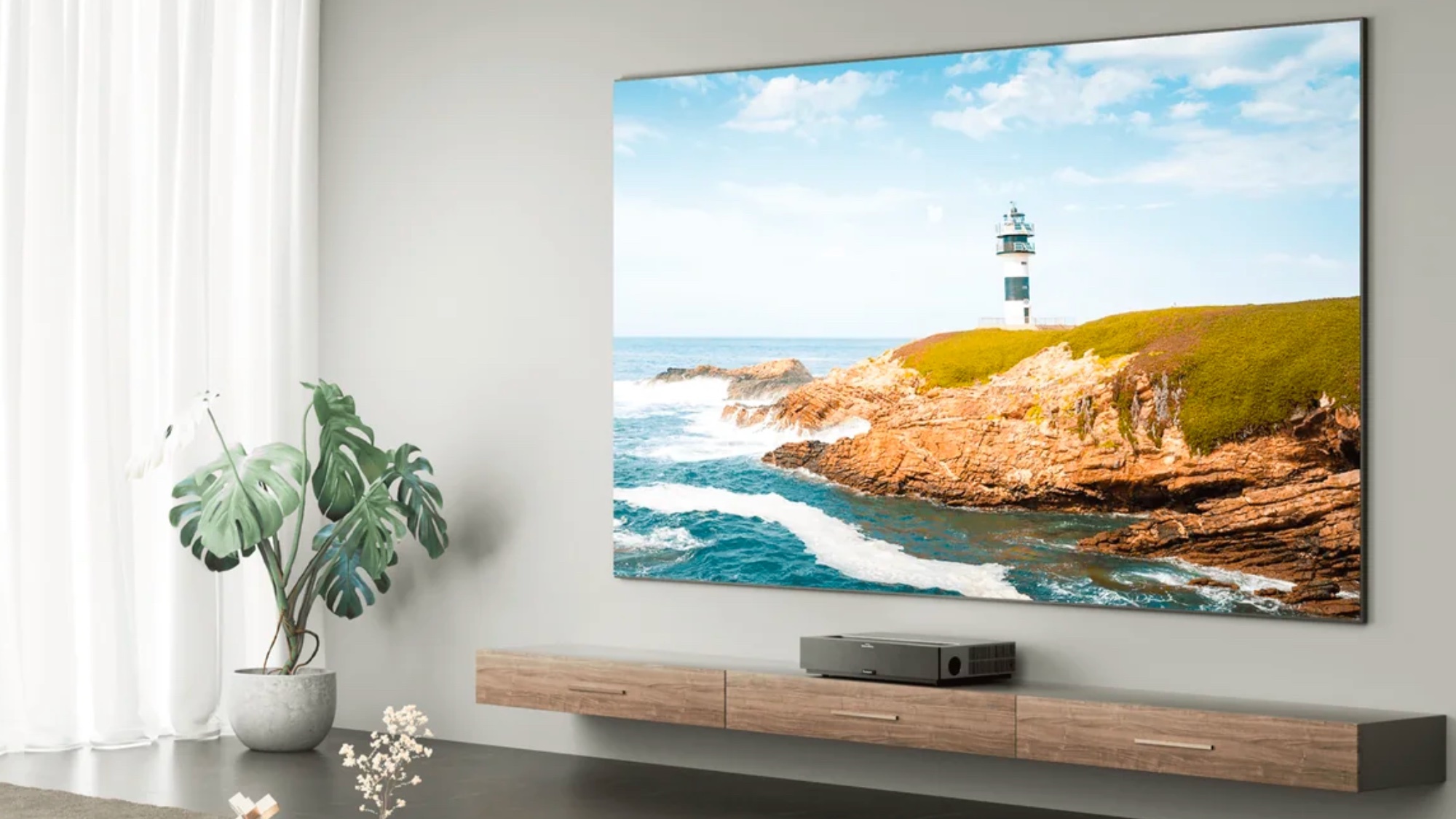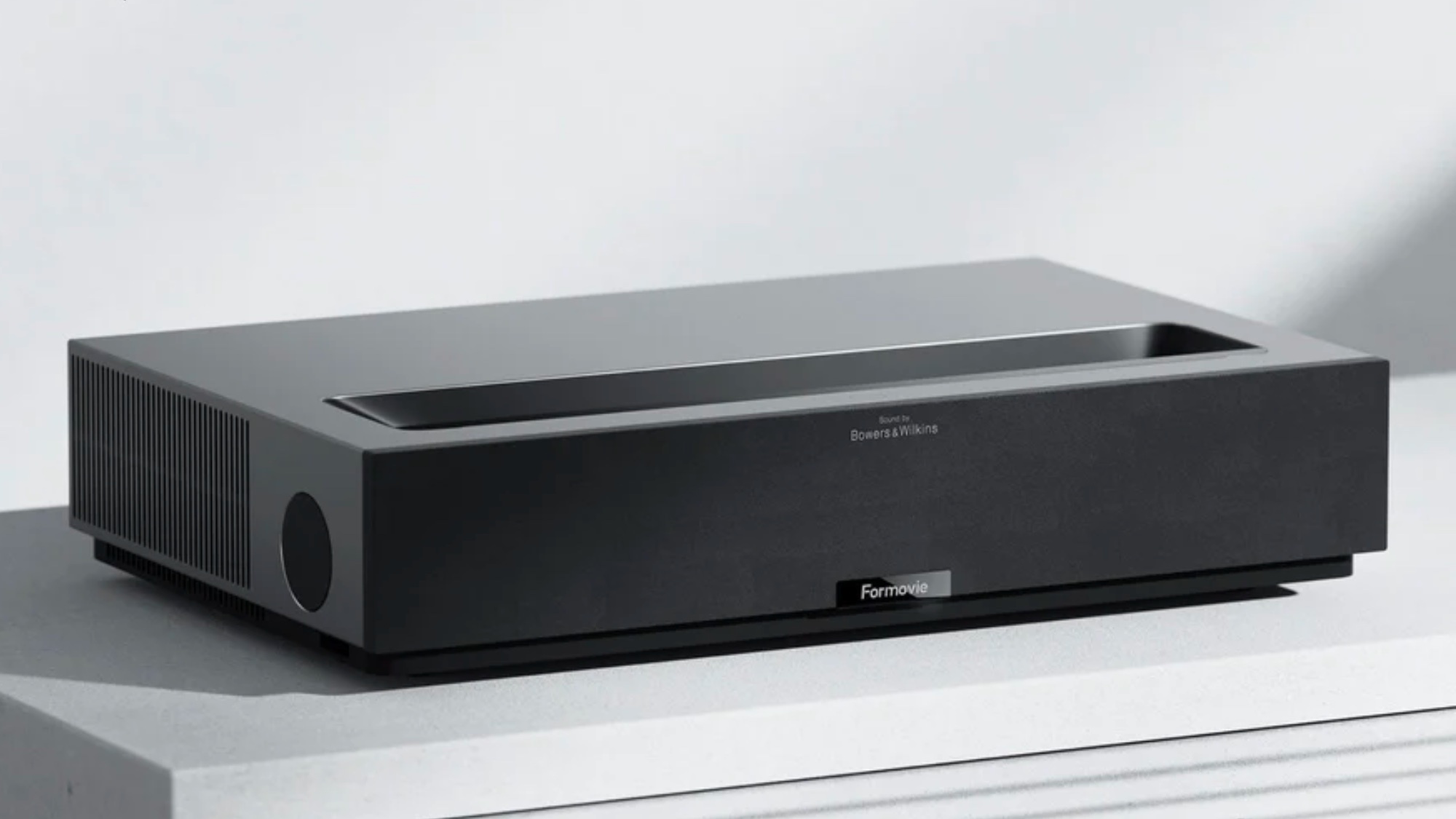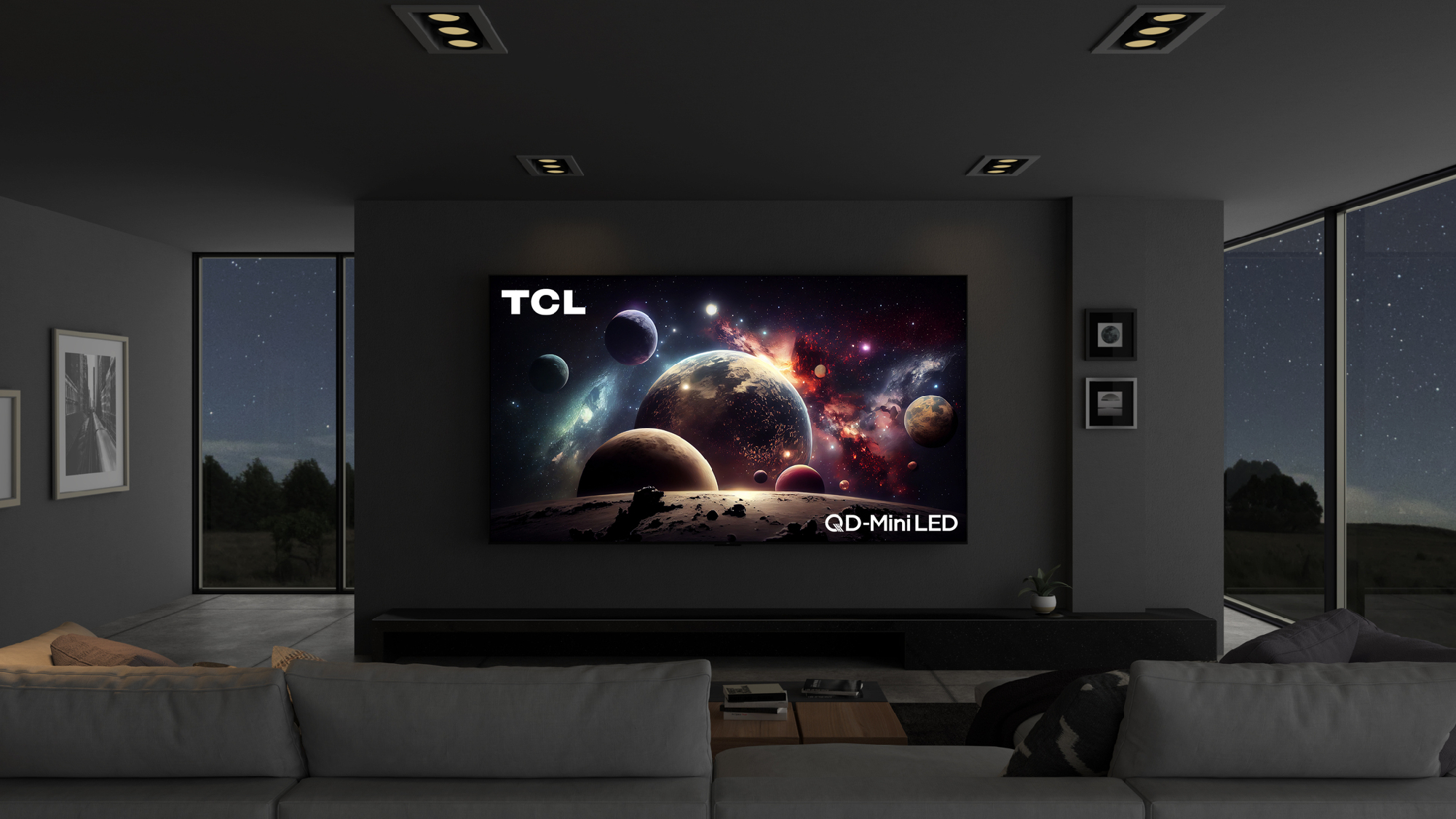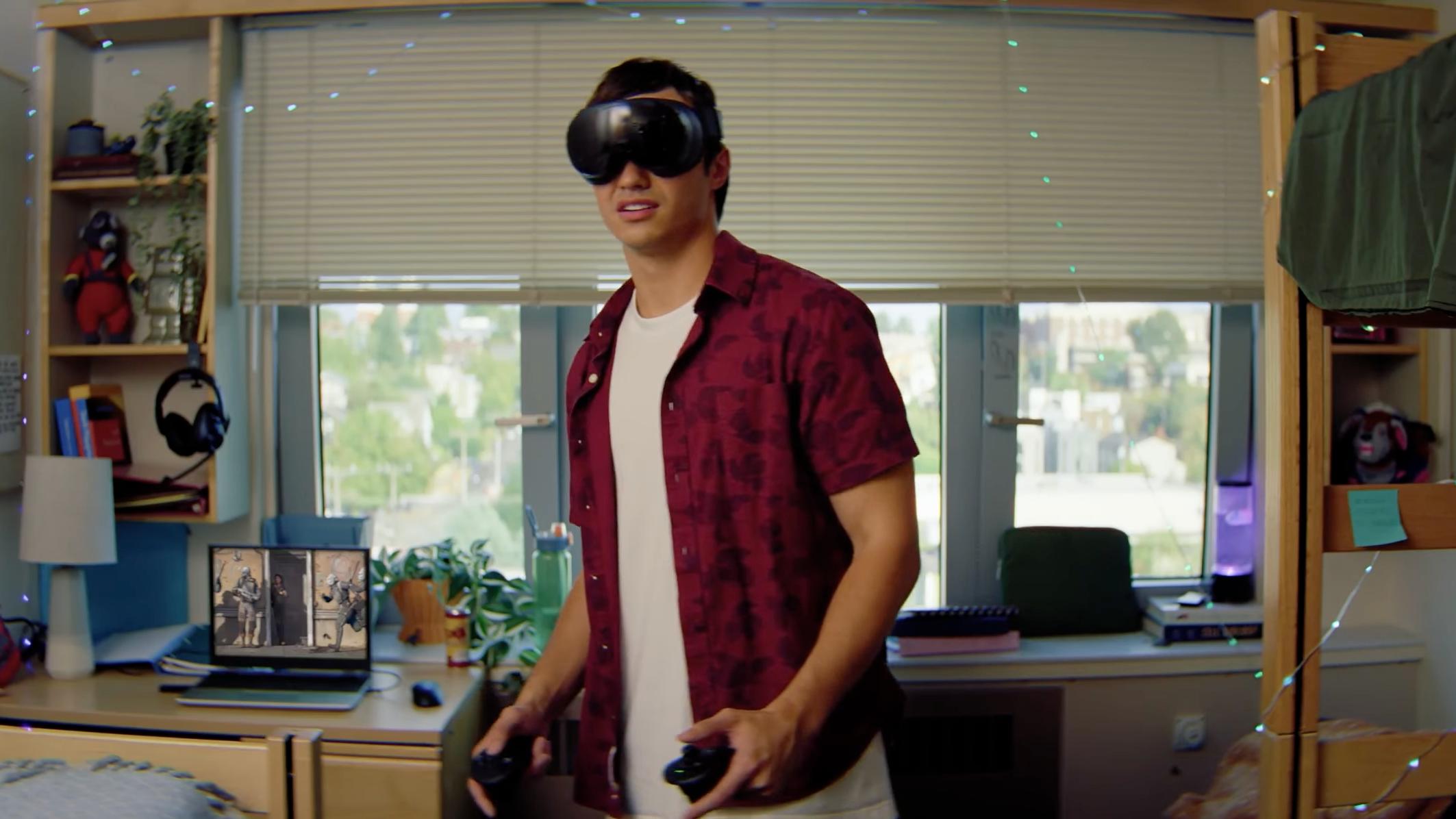Should you buy a laser TV? A case for and against laser projectors
Is a laser TV as futuristic as it sounds?

TV technology is always changing and almost always for the better. As we leave traditional LED-LCD TVs behind, there are a number of new TV technologies that have been making headlines for a number of years now, including the likes of Mini-LED TVs, Micro-LED TVs and new QD-OLED TVs.
There’s another type of display that's been gaining steam, too, though: the laser TV.
There are plenty of benefits to a laser TV — like the fact that they support much larger display areas at a much lower price than a traditional TV. But the laser TV isn’t exactly what it seems. It's technically an ultra-short throw projector that has been equipped with modern TV internals like, typically, a TV tuner that can connect to a TV antenna for OTA channels. When paired with a light-rejecting screen, you can get a supersized version of your favorite sports game for around the cost of an OLED TV.
Ready to learn about laser TVs? Here’s everything you need to know about display technology and whether or not you should consider one for yourself.
First off, what is a laser TV?
Despite the naming, a laser TV isn’t actually really a TV at all — or at least not in the traditional sense. On the contrary, laser TVs are really just a good ol’ fashioned ultra-short throw projector with a few extra components tossed in there.
Ultra-short throw projectors are projectors that project up towards a screen rather than ahead towards a screen — allowing you to place the projector right in front of the projection screen, or at most a few inches away from it. So, for example, you can place the projector on a TV stand or entertainment center. That avoids having to mount a projector to a ceiling or find a place towards the back of a room to place it.
Often when you buy a “laser TV,” the projector that’s included is designed to projector a specific size of image with a fixed lens — unlike traditional ultra short-throw projectors, which can projector a range of different sizes.
Get instant access to breaking news, the hottest reviews, great deals and helpful tips.

Another key difference is that laser projectors are projectors that are powered by a laser light source, instead of a traditional lamp-based light source. Laser projectors are known for their quiet operation and lower energy consumption.
A laser TV system also usually involves a specific kind of projection screen. Normally, laser TVs use permanently-mounted ALR screens, or ambient light-rejecting screens. These are screens that are specifically designed to reflect light that comes from a certain angle, and reject light that comes from other angles. So, they’ll reflect the light coming up from the laser projector, and reject light coming from other directions, which helps reduce glare.
Typically when you buy a “laser TV,” you’ll get a package that comes with both a laser projector and an ALR screen.
How are laser TVs better than traditional TVs?
There’s one major area in which a laser TV is “better” than a traditional TV – image size. In fact, laser TVs are usually designed specifically for large sizes, and you typically wouldn’t buy a laser TV for a 55 or 65-inch image.
Most laser TVs start with 100-inch displays and can go up to 150 inches in size. One of the most common sizes is 120 inches, and you'll often see ALR screens in that size.
Hisense has been one of the biggest developers of laser TV technology, and it sells laser TVs designed for two different sizes: 100 inches and 120 inches for around $2,500 and $3,000, respectively. That’s pretty huge, especially when you consider the fact TVs in that size-range (like TCL’s new 115-inch QM89) is expected to cost tens of thousands of dollars.

How are laser TVs worse than a traditional TV?
Unfortunately, screen size-per-dollar spent is pretty much the only real advantage laser TVs have over traditional TVs. That, however, doesn’t mean they’re radically worse than traditional TVs at everything else. In fact, there are plenty of things that laser TVs are about as good at doing as traditional TVs. For example, like traditional TVs, laser TVs are available in up to 8K resolutions, and many support newer connectivity standards like HDMI 2.1.
Traditional TVs can get brighter, offer deeper black levels through things like OLED technology, and are quieter than the already-relatively-quiet laser TV.
But when it comes to image quality, so-called traditional TVs have a clear advantage. Of course, image quality varies widely depending on the TV you get — but traditional TVs can get brighter, offer deeper black levels through things like OLED technology, and are quieter than the already-relatively-quiet laser TV.
Laser TVs also have a longer latency, making them not as ideal for gaming, and they’re harder to install, though most should still be able to install a laser TV and projection screen without needing additional help.
Is it worth buying a laser TV?
There are certain types of people who'd absolutely love a laser TV. If you're the kind of person who wants a movie theater-like look in your basement or living room, a laser TV can provide both the aesthetic and the experience. They're also great for folks who want the largest screen possible for the lowest amount of money.
Again, Hisense makes some great laser TVs, so those should be your first port of call.
That being said, $2,500 would also get you a beautiful 75-inch TV — specifically a Mini-LED like the Hisense U8N or OLED TV like the Samsung S95C OLED. These TVs are going to produce a better image in most living rooms and are the better option for gamers thanks to their lower input latency.
You can't go wrong with either option, but if you want to bring the larger screen of your local cinema to your living room, then a laser TV is a great pick.

Christian de Looper is a freelance writer who has covered every facet of consumer tech, including mobile, audio, home theater, computing, gaming, and even car tech. At Tom’s Guide, Christian covers TV and home theater tech, and has reviewed dozens of TVs, soundbars, and A/V receivers, including those from the likes of Samsung, Hisense, TCL, and Vizio.
 Club Benefits
Club Benefits





